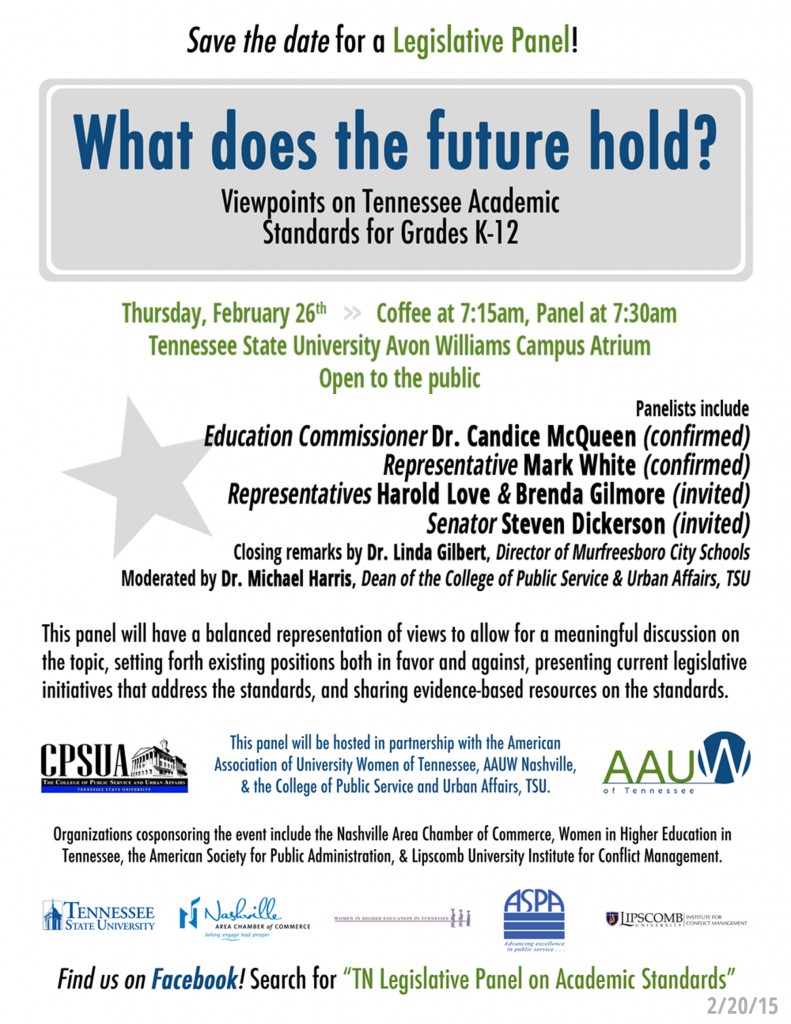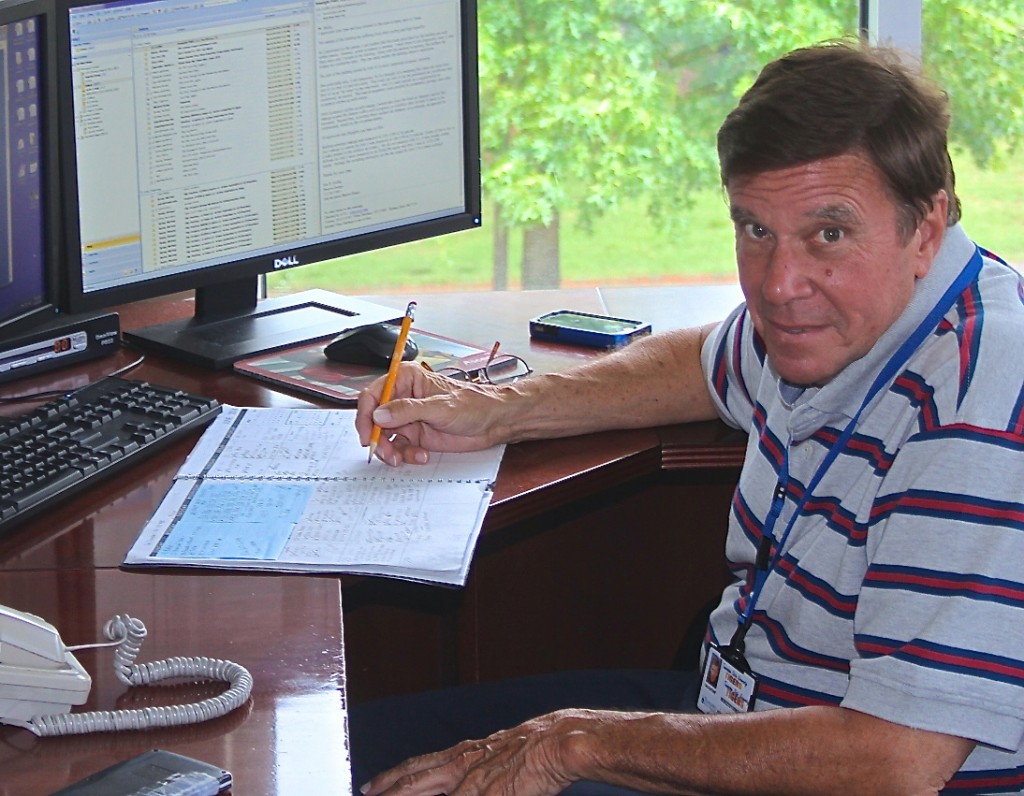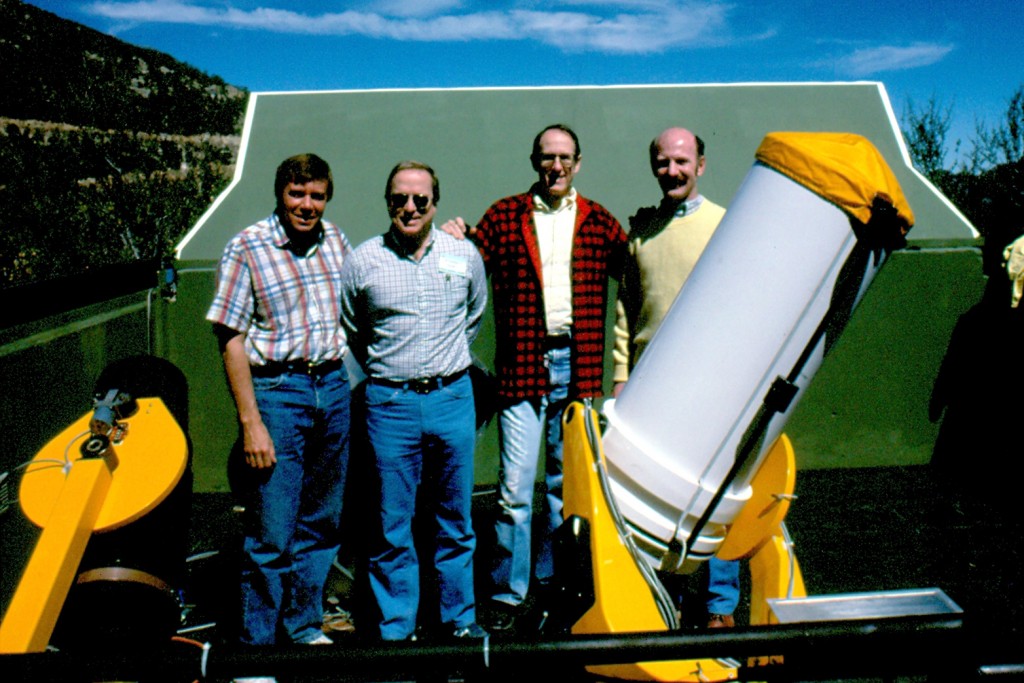 NASHVILLE, Tenn. (TSU News Service) – One of the biggest and controversial issues facing the 109th General Assembly in Tennessee this session is what role should the state have in mandating a common set of academic expectations for students to achieve at each grade level. This has significant implications on curriculum, budget and decision making.
NASHVILLE, Tenn. (TSU News Service) – One of the biggest and controversial issues facing the 109th General Assembly in Tennessee this session is what role should the state have in mandating a common set of academic expectations for students to achieve at each grade level. This has significant implications on curriculum, budget and decision making.
To inform the public on what the future holds for education legislation in the state, Tennessee State University will hold a legislative panel and forum on “Viewpoints on Tennessee Academic Standards for Grades K-12,” Thursday, Feb. 26 at the Avon Williams Campus Atrium. The forum begins at 7:30 a.m. and is free and open to the public.
Education Commissioner, Dr. Candice McQueen, will be the featured speaker for the event, with State Senators Steven Dickerson, member of the Senate Education Committee, and Becky Duncan Massey, member of the Joint Subcommittee on Education, Health and General Welfare, serving on the panel provide to let the public to see, hear and digest information on the state’s standards.
Other panel members include State Representatives Brenda Gilmore, Harold Love Jr., member of the House Education Instruction Programs Committee, and Mark White, chair of the House Subcommittee on Education Administration and Planning.
According to Dr. Michael Harris, dean of the College of Public Service and Urban Affairs and moderator of the forum, the panel will provide a balanced representation of views to “allow for a meaningful discussion.”
“Education standards are probably one of the biggest issues taken on by legislators this year,” said Harris. “The panelists will discuss existing positions both in favor or against the standards, present current legislative initiatives that address them, and share evidence-based resources on the standards.”
The panel discussion on academic standards comes on the heels of Tennessee school superintendents recently urging state lawmakers to rethink making any changes this year to the state’s K-12 academic standards and instead give Gov. Bill Haslam time to complete his current review next year.
The Tennessee Organization of School Superintendents Tuesday presented a letter signed by 114 superintendents from the state’s 141 school districts at the State Capitol, asking that, “no legislative action be taken during the 2015 legislative session to change our academic standards.”
Many argue, that the success of the recently signed Tennessee Promise law that offers future graduates of any Tennessee high school the opportunity to receive two years of community or technical college tuition-free, hinges on how prepared students are to succeed. Recently, leaders of all 13 of Tennessee’s community colleges held a press conference at the state capitol to emphasize their support for continuing Tennessee’s commitment to higher K-12 academic standards that prepare students for college study.
“This is an issue that the public needs to be informed about, and kept abreast on what is facing our schools, our students and our legislators,” Harris added.
Along with TSU, the forum is hosted in partnership with the American Association of University Women of Tennessee, and AAUW Nashville. Organizations cosponsoring the event include the Nashville Area Chamber of Commerce, Women in Higher Education in Tennessee, the American Society for Public Administration, and Lipscomb University Institute for Conflict Management.
For more information, contact Dr. Ann-Marie Rizzo, professor of Public Administration, at 615.963.7250 or [email protected].
Tennessee State University
3500 John Merritt Boulevard
Nashville, Tennessee 37209
615.963.5331
About Tennessee State University
With more than 9,000 students, Tennessee State University is Nashville’s only public university, and is a comprehensive, urban, co-educational, land-grant university offering 42 undergraduate, 24 graduate and seven doctoral programs. TSU has earned a top 20 ranking for Historically Black Colleges and Universities according to U.S. News and World Report, and rated as one of the top universities in the country by Washington Monthly for social mobility, research and community service. Founded in 1912, Tennessee State University celebrated 100 years in Nashville during 2012. Visit the University online at tnstate.edu.


